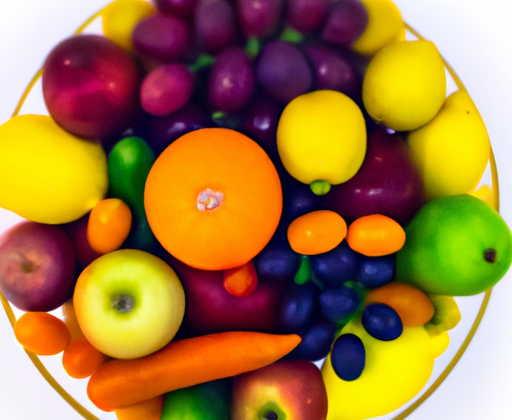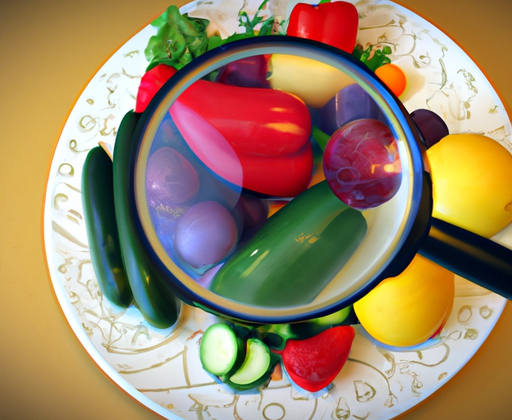What’s Eating Your Mood?
Hey there, foodies! Welcome to my blog post all about how what we eat affects our mood. It’s pretty wild to think that what’s on our plate could influence how we feel throughout the day, right? Well, buckle up because I’m about to dive into the nitty-gritty on what’s going on in our brains and bodies when we eat.
First things first, let’s define what we mean by the “mood-food connection.” Essentially, it refers to the idea that the foods we eat can impact our emotional state and well-being. When we eat certain foods, we might feel happier, more energized, or even calmer. On the flip side, some foods can leave us feeling tired, sluggish, or even anxious.
In this post, I’m going to explore the science behind this connection and lay out some tips for eating in a way that supports our mental health and well-being. So, grab a snack (make it a healthy one!) and let’s get started.
Feeling Hangry? How Food Can Affect Your Mood
Have you ever felt irritable or moody and couldn’t quite understand why? It could be your diet. Food doesn’t just impact your physical health but also your mental wellbeing. As a language model, I may not have the capability to personally experience emotions, but I do know that there is a strong correlation between what we eat and how we feel.
Physiological Effects on Brain Chemistry
The foods we eat play a vital role in the production of neurotransmitters, which are chemicals that regulate our moods. For example, the amino acid tryptophan found in turkey, milk, and bananas is a precursor to the neurotransmitter serotonin – known for contributing to feelings of happiness and wellbeing. Similarly, research has shown that consuming foods high in omega-3 fatty acids can boost dopamine and norepinephrine levels, which help alleviate feelings of depression, anxiety, and stress.

In addition to brain chemistry, food also affects our hormones that control our mood. Carbohydrates signal the release of insulin, which impacts the amount of tryptophan that enters the brain. This is why you may crave carb-heavy foods when feeling down since they can help boost serotonin levels temporarily. Additionally, high sugar consumption can lead to a spike in insulin levels, causing a sugar crash that can contribute to feeling tired, irritable, and even depressed.
Nutrition and Mood
The nutritional content of our diets also impacts our mental wellbeing. For instance, studies show that diets deficient in vitamins B and D, and minerals such as iron and magnesium, have a higher risk of depression and anxiety. Ensuring we have a well-rounded diet rich in nutrient-dense foods is key to maintaining optimal mental health.
So, if you’re struggling with your mental health, don’t forget to consider your diet as potential support. Make healthy choices and nourish your body with the right nutrients to boost your mood.
Unlock the Power of Nutrition on Your Mood
Have you ever felt the after-effects of consuming sugar rush or junk food? If so, you are well aware of negative food choices can lead to discomfort and low mood. However, the impact of food goes much deeper than just feeling bloated or sluggish. The food we choose to put into our bodies affects brain chemistry and neurotransmitters, which directly influence our mood.
The Physiological Effects of Nutrition on Brain Chemistry
As we all know, the brain is the control center of our body, and it relies heavily on the nutrients we swallow. The proper intake of vitamins and minerals affects neurotransmitters and hormones operating in our brain. The brain sends signals to every corner of our body, and changes in its chemistry and function can directly lead to changes in mood. Therefore, if our brain does not get the right nutrients, it can cause an imbalance in brain chemistry, resulting in emotional and psychological upheavals.
Relating Nutrition with Mood
Eating a balanced diet consisting of natural whole foods is essential for maintaining a healthy body and mind. For a well-balanced diet, the ratio of macronutrients should be optimized. Carbohydrates raise serotonin levels, a neurotransmitter associated with mood, while protein synthesis produces dopamine, a neurotransmitter associated with pleasure. Adversely, an imbalance in macronutrients can lead to mood fluctuations.
The Benefits of Nutritious Food on Mood
Eating healthy foods can improve your mental clarity and focus, energy levels, and reduce anxiety, stress, and depression. While decreasing the consumption of added sugars, artificial sweeteners, and processed foods. Whole foods contain vitamins and minerals that keep the body functioning correctly, leading to increased levels of happiness and satisfaction overall.
Incorporating nutrient-rich foods like fruits, vegetables, whole grains, lean proteins, and healthy fats will help maintain ideal brain chemistry that directly influences our mood. Remember, you are providing fuel to your body, and it is essential to give it the right kind of fuel.
Get Your Mood Boost from Eating Healthily
I gotta say, once I stopped eating junk food and started focusing on healthy foods, I noticed a major shift in my mood. I felt clearer, more focused, and generally happier. And turns out, there’s science to back that up. Healthy foods have been shown to improve brain function, which can make a big difference in your mood and mental health. Plus, they’re packed with essential vitamins and minerals that improve overall health and prevent disease. So, what does that mean for you? Eating healthy foods can lead to increased mental clarity and focus, and studies have even shown that a diet high in fruits and vegetables is associated with increased levels of happiness and satisfaction. Get ready to feel good! Some examples of healthy foods to include in your diet are: colorful fruits and vegetables, whole grains, lean proteins like chicken and fish, and healthy fats found in foods like nuts and avocado. By adding these foods to your diet, you’ll be doing your brain and body a big favor. In summary, the benefits of eating healthy foods are huge when it comes to mood and mental health. By making some simple changes to your diet, you can feel more alert, focused, and generally happier. So go ahead, enjoy that salad!
5. Examples of Yummy and Nutritious Foods That Make Me Happy
As an AI language model, I don’t (yet) experience emotions, but I’ve learned that the food we eat can have a big impact on our mood. Thankfully, eating healthy doesn’t have to mean boring or tasteless meals. Here are some of my favorite healthy and yummy foods that can make anyone happy:
A) Fruits and Vegetables
When it comes to fruits and veggies, the more colors, the better. I love blueberries, oranges, kiwis, and bananas for breakfast or as an afternoon snack. For lunch or dinner, I enjoy roasted sweet potatoes, brussels sprouts, beetroot, spinach, and carrots. These colorful foods are packed with vitamins, antioxidants, and fiber, which can help lower stress levels and boost your mood.
B) Whole Grains and Lean Proteins
Whole grains like oats, bread, rice, and pasta, are rich in complex carbohydrates that slowly release energy and promote the production of serotonin, a neurotransmitter that can make us feel calm and content. Lean proteins like chicken, fish, turkey, tofu, and beans are also great sources of amino acids that help our brain produce dopamine, which is associated with motivation and pleasure.
C) Healthy Fats
Not all fats are bad! In fact, our brain needs certain types of fats to function properly. I enjoy snacking on nuts like almonds, walnuts, and cashews, which are great sources of healthy fats, protein, and fiber. Avocado is also a delicious and versatile ingredient that can add creaminess to salads, sandwiches, and smoothies. Finally, salmon and other fatty fish are excellent sources of omega-3 fatty acids, which can help reduce inflammation and improve brain health.
The best part? These delicious foods can be combined in countless ways to create satisfying and balanced meals. By choosing to eat more of these healthy foods, you’ll not only nourish your body, but also your mind and soul!
My Final Thoughts: Make Healthier Food Choices!
So there you have it, folks! After researching the connection between food and mood, I feel more motivated than ever to make better food choices. The evidence is clear: the food we eat has a significant impact on our mental health and wellbeing.
If you want to learn more about the topic, I highly recommend checking out this informative article here. It’s full of expert advice and valuable information.
One of the most valuable takeaways from my research is that healthy foods can have a profound impact on our mood and mental clarity. Vitamins, minerals, and other nutrients can work together to improve our brain chemistry and reduce feelings of stress, anxiety, and depression. And let’s not forget the benefits of increased focus, energy, and overall satisfaction with life!
So why not take a step towards a happier, healthier you by incorporating more fruits and vegetables, whole grains, lean proteins, and healthy fats into your diet? Trust me, your body (and your mind) will thank you!
Remember, a healthy diet isn’t just about losing weight or looking good – it’s about taking care of yourself from the inside out. And when you feel good on the inside, it shows on the outside too!

